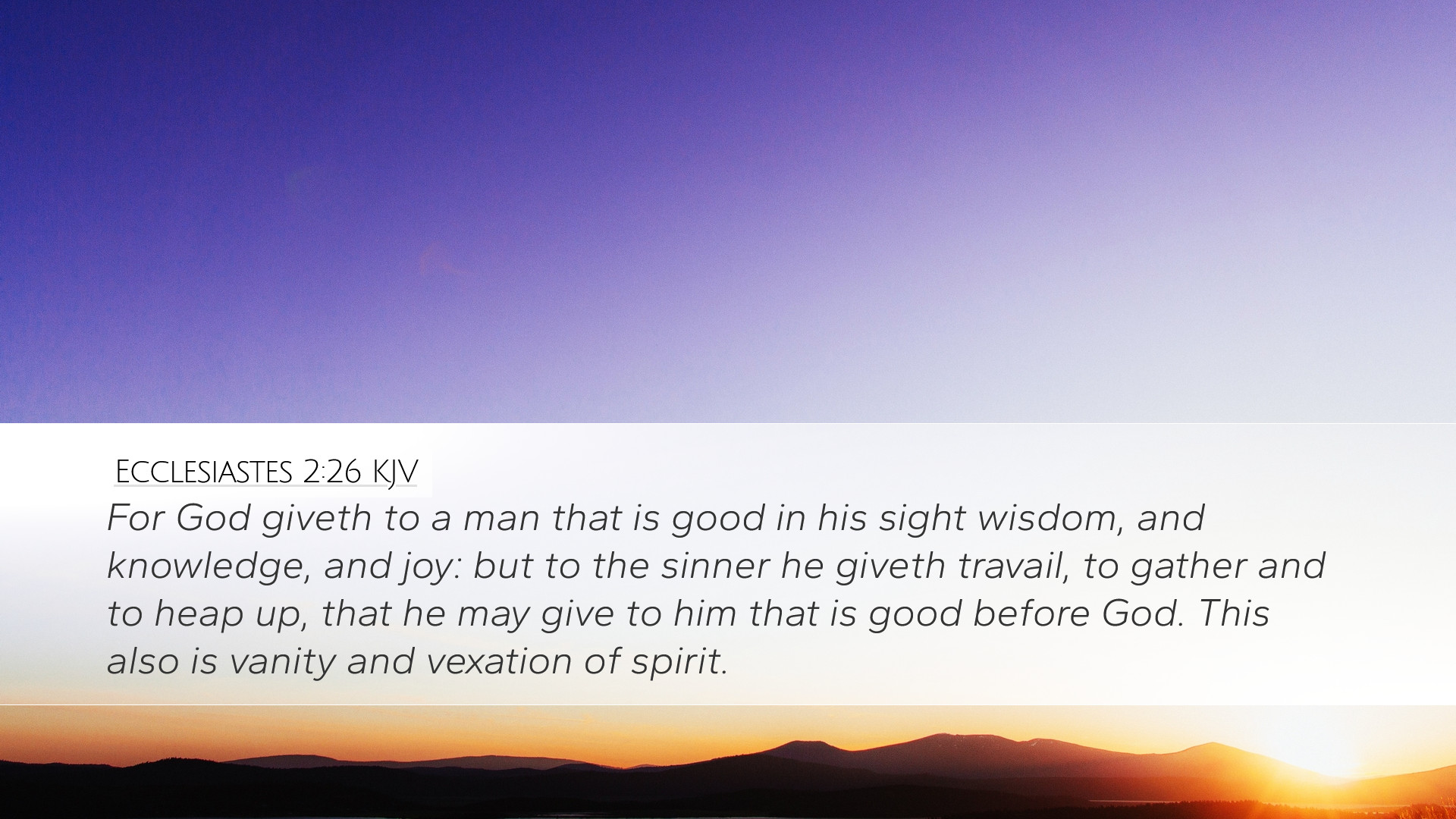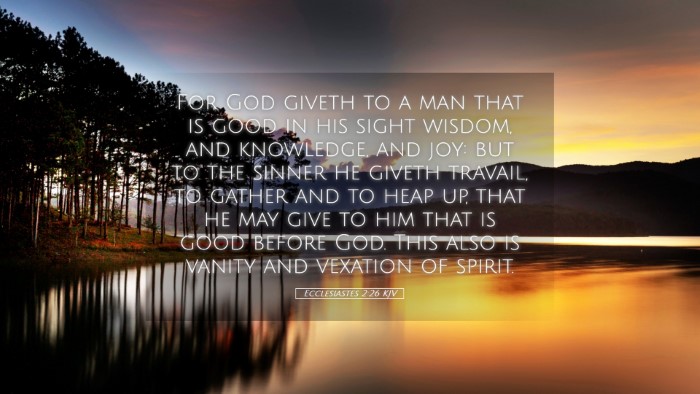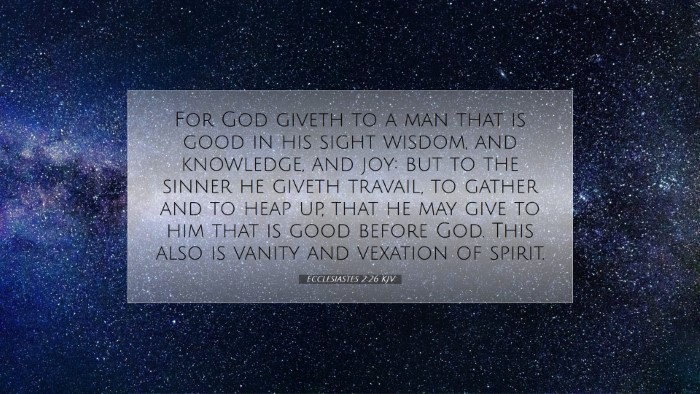Commentary on Ecclesiastes 2:26
Ecclesiastes 2:26 states:
"For to the one who pleases him God has given wisdom and knowledge and joy, but to the sinner he has given the busyness of gathering and collecting, only to give to one who pleases God. This also is vanity and a striving after wind."
Introduction
This verse serves as a poignant conclusion to the exploration of worldly pursuits and the inherent futility of seeking satisfaction outside of God. It highlights the distinction between the righteous and the wicked, thereby illuminating the deeper theological implications of human efforts and divine favor.
Key Themes
- The gifts of God: Wisdom, knowledge, and joy are framed as gifts to those who please God.
- The plight of the sinner: Conversely, those outside of God's favor are characterized by a life of toil without genuine satisfaction.
- The overarching theme of vanity: The verse concludes with the reiteration that all human efforts without divine purpose are ultimately vain.
Insights from Public Domain Commentaries
Matthew Henry's Commentary
Matthew Henry emphasizes the divine sovereignty in bestowing wisdom, knowledge, and joy on those who align themselves with God's will. He suggests that these blessings are not merely intellectual or experiential but are profound gifts that bring fulfillment beyond human comprehension. He contrasts this with the experience of sinners, who may accumulate wealth and engage in endless pursuits, yet find their efforts fruitless.
Albert Barnes' Notes on the Bible
Albert Barnes reflects on the conditional nature of God's gifts as expressed in this verse. He points out that while God graciously grants wisdom and joy to the righteous, the sinner's fate is to be burdened with gathering material wealth, which ultimately serves to benefit those who are aligned with God’s purpose. Barnes articulates that this shedding light on the transient nature of earthly pursuits reinforces the overarching message of Ecclesiastes: apart from God, human effort is vanity.
Adam Clarke's Commentary
Adam Clarke delves into the theological implications of God's distribution of wisdom and joy. He emphasizes that such gifts are not earned but bestowed based on God’s grace. Clarke notes that the Hebrew word for 'sinner' implies moral deficiency, painting a stark picture of the reality faced by those who reject divine wisdom. Furthermore, he highlights that the “busyness of gathering” can be interpreted as a divine irony where the fruits of labor are ultimately reassigned to those who are righteous, enhancing the idea of moral order in divine providence.
Interpretive Reflection
This verse encapsulates the dichotomy between earthly pursuits and spiritual fulfillment. For pastors, students, theologians, and Bible scholars, the implications are profound:
- Righteousness and wisdom: The relationship between living a life that pleases God and the receptiveness to divine wisdom and joy.
- Futility of sinful pursuits: An exploration of how worldly endeavors devoid of spiritual value lead to emptiness.
- Divine sovereignty: The recognition that all gifts, including wisdom and joy, come from God and should redirect our focus to Him.
Application for Believers
In practical terms, Ecclesiastes 2:26 invites believers to reflect on their priorities and motivations. Pastors might use this verse to encourage congregants to seek a life that is pleasing to God, emphasizing the joy and wisdom that follow. For students of theology, this passage can provoke critical conversations about the nature of divine favor and the contrasts it presents within the human experience of success and fulfillment.
Conclusion
Ecclesiastes 2:26 serves not only as a theological assertion but as a reflective challenge for all who seek to understand the value of life within a biblical framework. The distinctions made between the righteous and the sinner reveal God's ultimate purpose—an invitation to embrace a life led by His wisdom and joy in contrast to the inevitable vanity of worldly pursuits.


